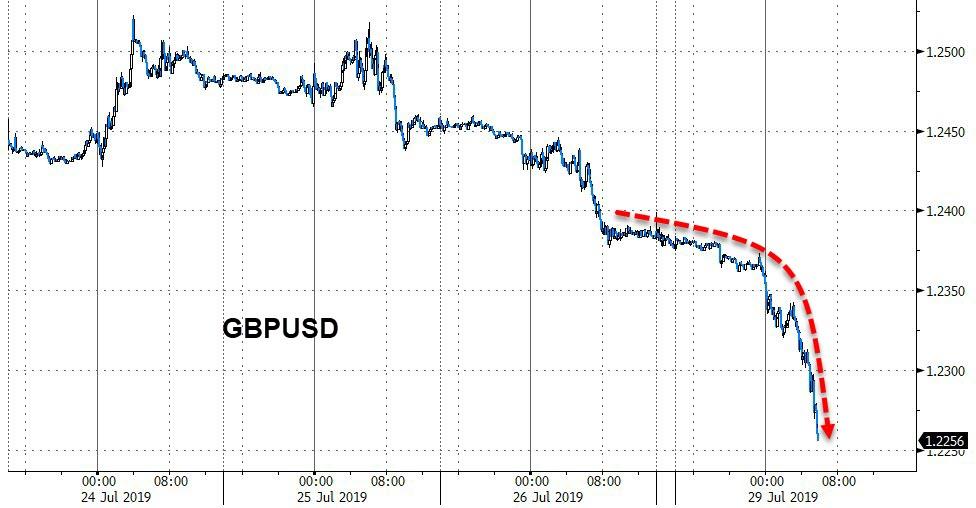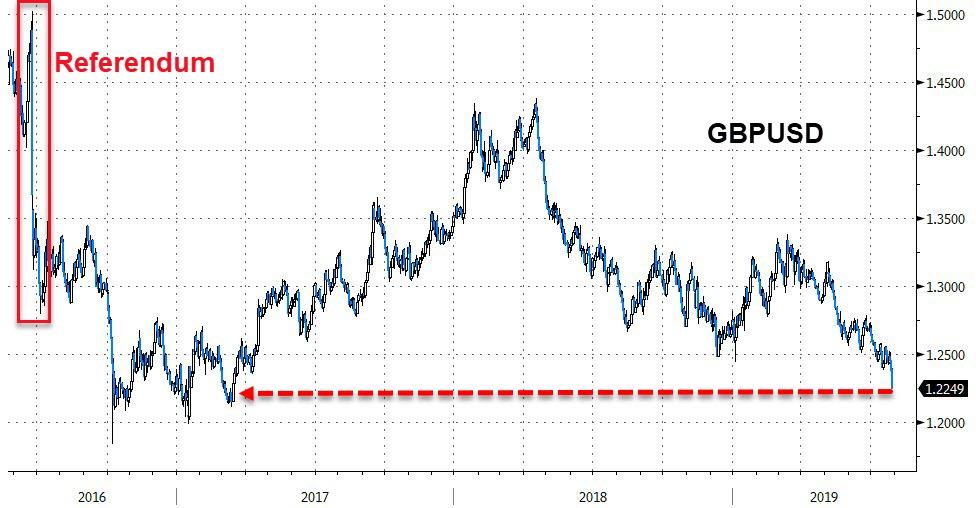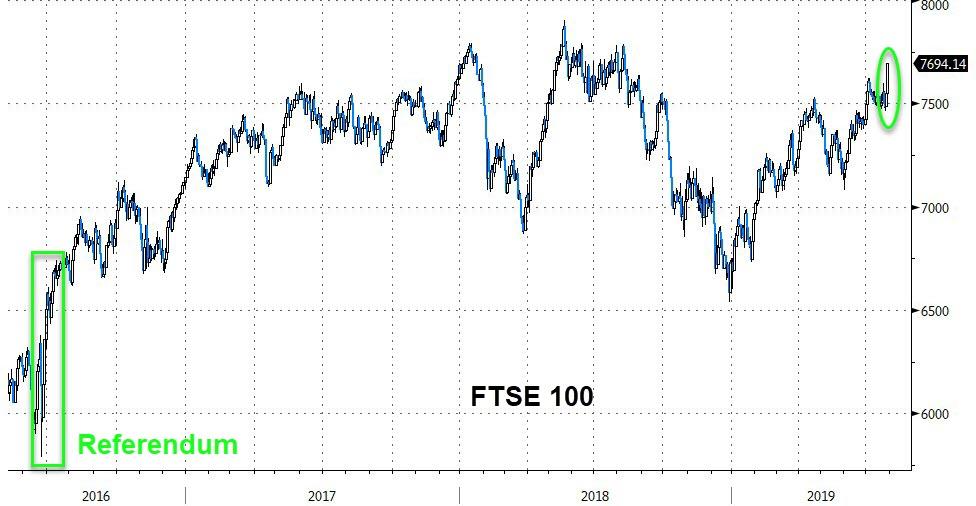Sterling has plunged back below 1.23 for the first time since March 2017 after new U.K. Prime Minister Boris Johnson's first high-level Brexit cabinet meeting today.
Unless the EU agrees to re-open negotiations, Johnson's top aide Michael Gove warns that a 'no deal' exit is the most likely outcome.
"We still hope they will change their minds, but must operate on the assumption that they will not," Gove wrote in the Sunday Times.
"No deal is now a very real prospect, and we must make sure we are ready."
And nothing this morning has improved the prospects, prompting traders to sell hard.
This is the weakest level for Sterling since March 2017...
And as cable crashes to FTSE stocks soar...
Most worrying for many is the fact that, as Bloomberg reports, Dominic Cummings, a key leader in the 2016 Brexit campaign, called advisers to the prime minister's residence Friday night and told them Brexit will happen "by any means necessary," the Times said. Cummings said Johnson is prepared to suspend Parliament or hold an election to thwart those who may seek to block a no-deal Brexit.



Commenti
Posta un commento